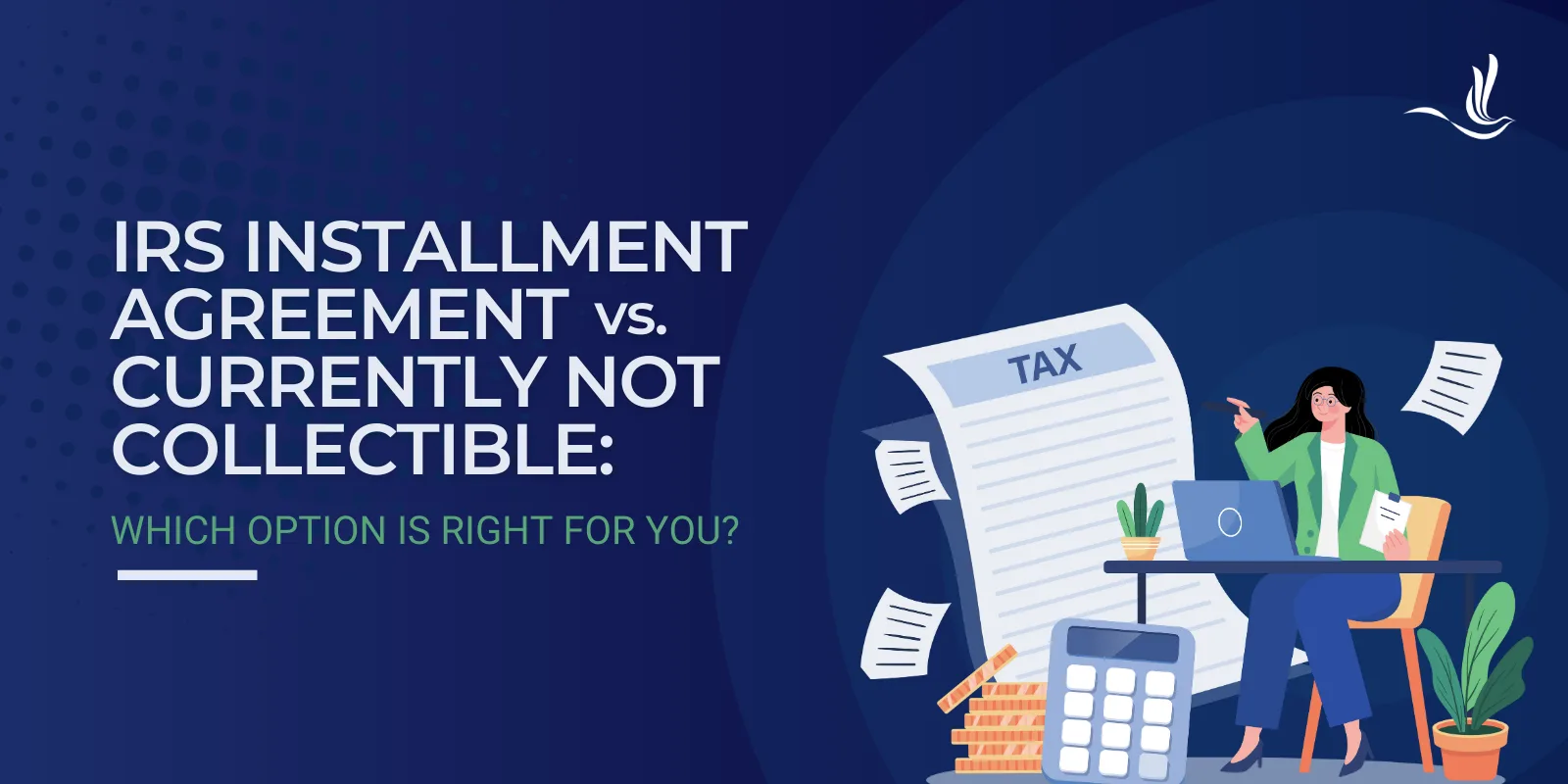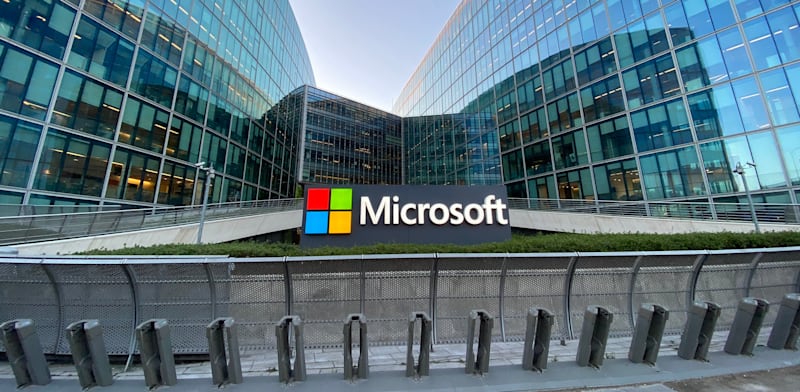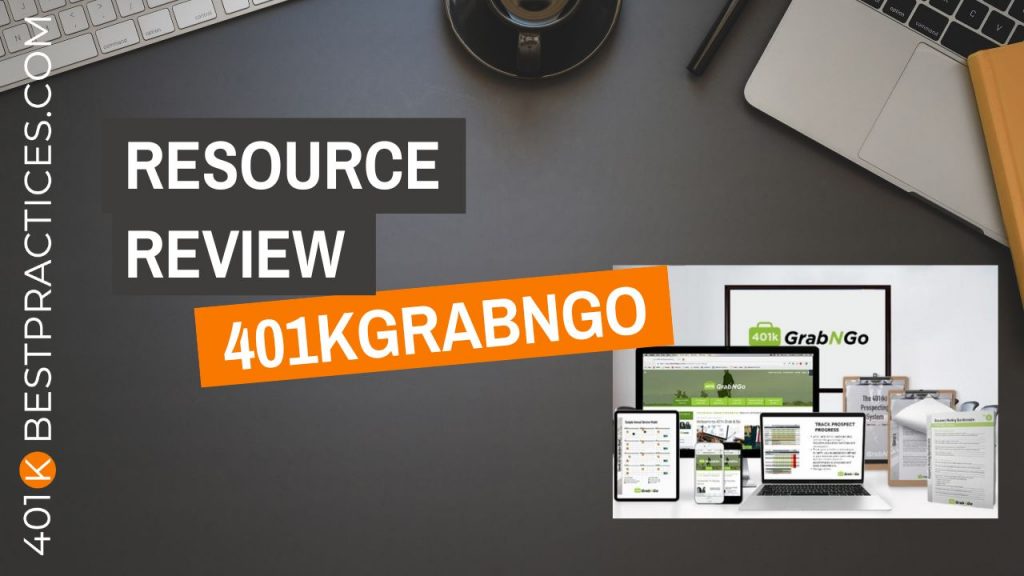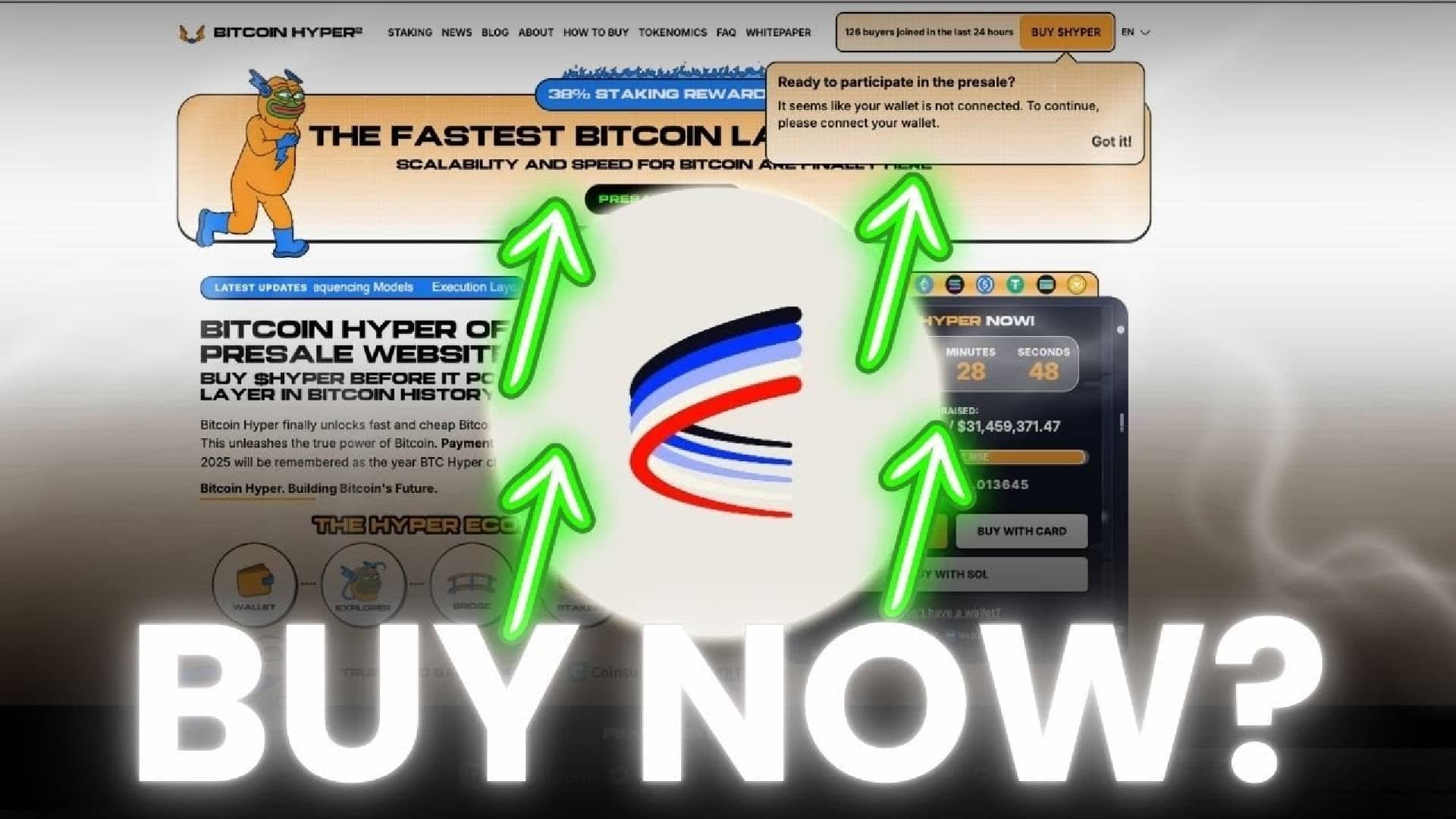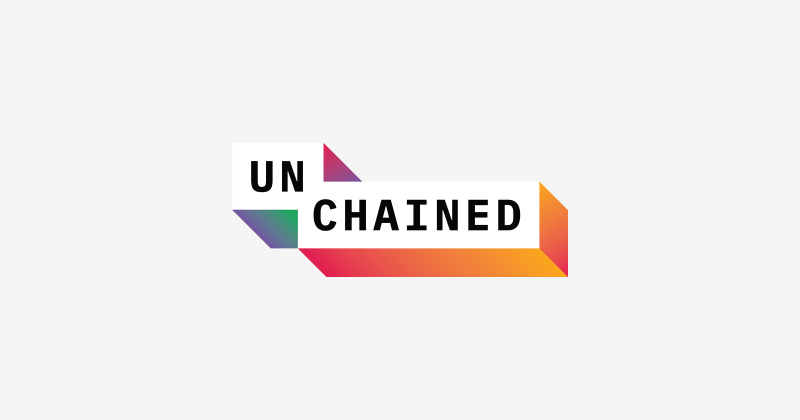Key Takeaways:
An IRS Installment Agreement lets you pay off tax debt in fixed monthly payments, while Currently Not Collectible (CNC) status pauses payments if you can’t afford them.
Both options stop aggressive IRS collection actions, but interest and penalties continue to accrue under either program.
Installment Agreements are best if you have steady income and can afford payments without sacrificing basic living expenses.
CNC status is better if any payment would cause hardship, but the IRS will review your finances regularly and may file a tax lien.
Applying for an Installment Agreement is generally simpler (often online), while CNC requires detailed financial documentation.
If neither option fits, alternatives like an Offer in Compromise or penalty relief may provide better long-term solutions.
When you owe the IRS and don’t have the funds to pay in full, the stress can feel overwhelming. Fortunately, the IRS offers tax relief programs designed to help taxpayers manage their debt without immediate financial ruin. The two most common options are the IRS Installment Agreement and Currently Not Collectible (CNC) status. While both can provide breathing room, they serve different purposes and are best suited for different financial situations. This guide breaks down how each option works, the eligibility criteria, pros and cons, and how to decide which might be the right fit for your circumstances.
Understanding the Two Options
When comparing IRS Installment Agreement vs. Currently Not Collectible, it’s important to understand the mechanics of each program before weighing the benefits and drawbacks. Both provide relief, but the outcomes differ significantly.
IRS Installment Agreement
An IRS Installment Agreement allows you to pay your tax debt in monthly installments over time rather than all at once. Think of it as a payment plan with the IRS.
There are several types of installment agreements depending on your balance and situation:
Short-term plans (Under 180 days): If you can pay your debt within 180 days, you may qualify for a short-term agreement without setup fees. Interest and penalties still accrue during this time.
Long-term installment agreements: For larger balances that require more than 180 days, you can make monthly payments until the balance is paid.
Guaranteed Installment Agreement: Available if you owe $10,000 or less (excluding penalties and interest), have filed all returns, and can pay within 3 years.
Streamlined Installment Agreement: Designed for individuals or businesses with balances under specific thresholds (often $50,000 for individuals).
Partial Payment Installment Agreement: Lets you make reduced monthly payments that may not cover the entire balance before the IRS collection statute expires, potentially reducing the total amount you ultimately pay.
For example, imagine you owe $12,000 in taxes. You can’t pay all at once, but you can afford $400 per month. An installment agreement spreads payments out and stops more aggressive collection actions like wage garnishments as long as you remain compliant.
Currently Not Collectible (CNC) Status
Currently Not Collectible (CNC) status is different. It doesn’t require any payment at all while it’s in effect. Instead, the IRS agrees that your financial situation prevents you from paying anything without jeopardizing your ability to afford basic living expenses.
Here’s how CNC works:
The IRS pauses collection actions like levies and garnishments.
Your balance continues to accrue interest and penalties.
A federal tax lien may still be filed, making it difficult to obtain new credit.
You must submit detailed financial information, typically using Form 433-F or Form 433-A, to prove you truly cannot afford payments.
The IRS periodically reviews your finances to determine if your situation has improved enough to resume collections.
For example, suppose you’re a single parent making $2,000 per month with rent, groceries, and utility costs totaling $1,900. The IRS may determine you cannot make any meaningful payment toward your $15,000 balance, and grant CNC status until your financial picture changes.
Eligibility and Application Process
Knowing whether you qualify for an installment agreement or CNC is crucial. Both require that you’re up to date on tax return filings, but the details vary.
Installment Agreement Eligibility
For an IRS Installment Agreement, eligibility largely depends on how much you owe and your compliance with filing requirements.
You must have filed all required tax returns.
Taxpayers in open bankruptcy proceedings are generally ineligible.
For streamlined agreements, you usually must owe less than $50,000.
Larger balances may require full financial disclosure using IRS forms like 433-A or 433-F.
Application methods include:
IRS Online Payment Agreement tool: The fastest method with lower setup fees.
Form 9465: Can be filed by mail if you prefer paper.
By phone: Speaking directly with the IRS may be necessary for complex situations.
A setup fee typically applies, ranging from $31 to $225 depending on how you apply and whether you opt for direct debit. Low-income taxpayers may qualify for reduced fees.
For example, if you owe $25,000, you can often apply online for a streamlined agreement without having to send in a full financial statement, simplifying the process.
CNC Eligibility
To qualify for Currently Not Collectible status, you must prove that paying anything would cause financial hardship. This isn’t based on your word alone. The IRS requires documentation.
You’ll typically complete Form 433-F (Collection Information Statement) disclosing income, expenses, assets, and liabilities.
The IRS uses its financial standards for necessary living expenses (covering food, housing, utilities, transportation, etc.) to determine eligibility.
If your expenses exceed your income, you may qualify for CNC.
Application process:
Contact the IRS directly by phone or through a tax professional.
Provide all supporting documentation of your financial hardship (pay stubs, rent receipts, utility bills, etc.).
The IRS reviews your case periodically, sometimes annually, to see if your finances have improved.
For instance, a retiree on Social Security with no significant assets and just enough income to cover food, rent, and medication costs may be granted CNC until their situation changes.
Pros and Cons of Each Option
Once you understand eligibility, the next step in weighing IRS Installment Agreement vs. Currently Not Collectible is to evaluate the pros and cons of each approach.
Pros and Cons of an Installment Agreement
Pros:
You make steady progress toward paying down your balance.
Once approved and payments begin, IRS collection actions stop.
Provides a predictable monthly payment structure.
Direct debit can reduce fees and lower the risk of default.
Cons:
Interest and penalties continue until the balance is paid in full.
Missing payments can cause the agreement to default, triggering enforcement.
Setup fees apply unless waived.
For partial payment agreements, you must submit detailed financial records and undergo periodic reviews.
Pros and Cons of CNC Status
Pros:
Provides immediate relief from collection activity.
No monthly payments required while status is active.
Protects essential income from garnishment (for example, wages or Social Security).
Cons:
Debt grows with accumulating penalties and interest.
CNC is temporary and the IRS will review your finances regularly.
A federal tax lien may still be filed, which can impact credit and ability to borrow.
It doesn’t move you closer to paying off the debt.
Side-by-Side Comparison
It can help to see the differences between IRS Installment Agreement vs. Currently Not Collectible laid out side by side.
Which Option Is Right for You?
Now that we’ve compared the details, let’s focus on decision-making. The right choice depends entirely on your financial situation and goals.
When to Choose an Installment Agreement
An installment agreement may be the right option if:
You have steady income and can afford monthly payments without compromising basic living expenses.
You want to actively reduce your debt balance.
You want to prevent enforcement actions like levies or garnishments while maintaining progress.
For example, a self-employed contractor with fluctuating income but the ability to pay $300–$400 per month would likely benefit from an installment agreement.
When to Choose CNC Status
CNC may be the better fit if:
Your income barely covers necessary living expenses.
Any payment would create genuine hardship (e.g., inability to pay rent or buy groceries).
You need immediate relief from IRS enforcement actions.
For example, an unemployed individual with no assets and minimal unemployment benefits may qualify for CNC until their situation improves.
When Neither May Be Ideal
In some cases, neither an installment agreement nor CNC provides the best path forward.
Offer in Compromise (OIC): If you can’t pay in full but could settle for less than you owe, an OIC may be an option.
Bankruptcy: In very limited cases, bankruptcy can discharge certain tax debts.
Other Relief: Penalty abatement or innocent spouse relief may also apply depending on circumstances.
Next Steps and Practical Tips
If you’re considering IRS Installment Agreement vs. Currently Not Collectible, preparation is key. Both require documentation, and the choice you make can impact your financial future.
Steps to Take
File all required tax returns: The IRS won’t approve any plan if you’re not compliant.
Gather financial records: Income, expenses, and debts will be critical.
Use IRS tools: The Online Payment Agreement tool is often the fastest way to apply for installment plans.
Consult a tax professional: For CNC applications, expert guidance can increase approval odds.
Tips for Success
Pay something if you can: Even a partial payment reduces penalties and interest.
Consider direct debit: This reduces setup fees for installment plans and helps prevent default.
Stay compliant: File and pay current taxes on time to avoid disrupting your plan.
Keep documentation ready: If the IRS reviews your case, having records handy avoids delays.
Frequently Asked Questions
How long does Currently Not Collectible status last?
Currently Not Collectible (CNC) status typically lasts until your financial situation improves or the IRS reviews your case, which usually happens every two years. If you remain unable to pay, the status can continue until the 10-year collection statute expires.
Can I skip an IRS installment payment?
You cannot simply skip an IRS installment payment without risking default. If you miss a payment, the IRS may send a reminder notice or terminate the agreement, so it’s best to contact them immediately to request a short-term adjustment.
Why would the IRS terminate an installment agreement?
The IRS may terminate an installment agreement if you miss payments, fail to file future tax returns, or do not pay new taxes owed. Defaulting puts you back at risk of enforced collection actions like wage garnishments or levies.
Can the IRS deny an installment agreement?
Yes, the IRS can deny an installment agreement if your proposed payment plan is not feasible, if you have unfiled tax returns, or if your financial information shows you can pay more. Submitting accurate documents and filing all returns improves your chances of approval.
Can I get a second installment agreement with the IRS?
You generally cannot have two IRS installment agreements at the same time. If you owe new taxes while already in a payment plan, the IRS usually requires you to amend or restructure your existing agreement to include the new balance. In limited cases, the IRS may allow a new agreement after defaulting, but you’ll need to reapply and meet eligibility requirements.
Will the IRS file a lien if I have an installment agreement?
The IRS may still file a federal tax lien even if you are on an installment agreement, especially if your debt exceeds $10,000. However, streamlined agreements and direct debit plans can sometimes prevent or withdraw liens.
Tax Help for Those Who Owe
Deciding between an IRS Installment Agreement vs. Currently Not Collectible depends on your financial capacity and long-term goals. An installment agreement is best if you can afford regular payments and want to steadily chip away at your debt. CNC status is more appropriate if paying anything at all would jeopardize your ability to meet basic needs. In either case, taking proactive steps, rather than ignoring IRS notices, will protect you from harsher collection actions. Consider consulting a tax professional to evaluate your unique situation and choose the strategy that provides the most relief with the least long-term damage. Optima Tax Relief is the nation’s leading tax resolution firm with over a decade of experience helping taxpayers.
If You Need Tax Help, Contact Us Today for a Free Consultation

